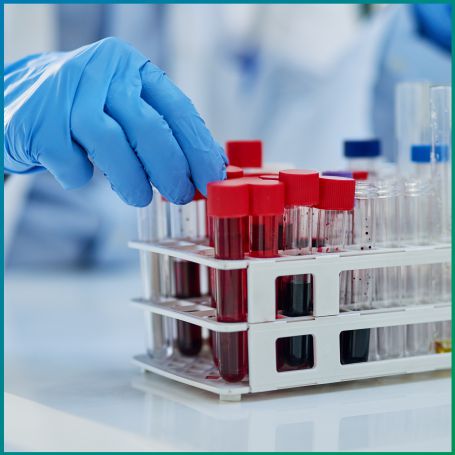
One of the diagnostic tools used to assess parietal cell dysfunction is the parietal cell total antibody test.


The human stomach contains specialized cells known as parietal cells. These cells play a crucial role in the production of stomach acid (hydrochloric acid) and intrinsic factor, a glycoprotein essential for the absorption of vitamin B12 in the small intestine. Any disruption in the normal function of parietal cells can result in various gastrointestinal and systemic disorders, including pernicious anemia and chronic atrophic gastritis.
The Parietal Cell Total Antibody Test pune is a simple blood test, and the procedure is straightforward. Here’s how it typically works:
1] Preparation: No special preparation, such as fasting, is required for this test.
2] Blood Draw: A healthcare provider will draw a sample of blood, usually from a vein in the arm.
3] Laboratory Analysis: The blood sample is sent to a laboratory, where it is tested for the presence of autoantibodies against parietal cells.
4] Results: Parietal Cell Total Antibody Test Results are generally available within a few days, depending on the laboratory. A positive result indicates the presence of parietal cell antibodies, while a negative result suggests the absence of such antibodies.
1] Positive Result: A positive result indicates the presence of parietal cell antibodies, which strongly suggests an autoimmune condition such as pernicious anemia or autoimmune gastritis. However, the presence of these antibodies alone is not enough for a definitive diagnosis. Further tests, such as vitamin B12 levels, intrinsic factor antibodies, and gastric biopsy, may be necessary to confirm the diagnosis.
2] Negative Result: A negative result means that no parietal cell antibodies were detected in the blood. However, the absence of antibodies does not entirely rule out autoimmune conditions, as they may develop later or exist without detectable levels.
3] Quantitative Analysis: In some cases, the test may also provide a quantitative result, indicating the level of antibodies present. Higher levels are generally associated with more severe autoimmune activity.
At Diagnopein, we offer comprehensive, accurate, and timely diagnostic services, including the parietal cell total antibody test Pune. With our NABL-accredited labs, cutting-edge technology, and skilled technicians, you can be assured of reliable results every time. Get your results quickly, especially when time is crucial in detecting severe infections.
Competitive pricing without compromising on quality. Our team of experienced professionals ensures the test is conducted smoothly with minimal discomfort. We provide not just the parietal cell total antibody test results but insights into your health condition, helping you and your doctor make informed decisions about treatment. For more information call us at +91 9204 108108.
The test involves a simple blood draw from a vein in your arm. The blood sample is then analyzed in a laboratory to check for the presence of parietal cell antibodies. No special preparation is needed before taking the test, and it typically takes a few minutes to complete.
No special preparation is needed for the test. You can eat and drink as usual before having your blood drawn.
No, this test is not used to diagnose stomach cancer. It detects autoantibodies associated with autoimmune conditions like pernicious anemia and gastritis. Further investigations such as endoscopy or biopsy would be needed for cancer diagnosis if your doctor suspects it based on symptoms or other findings.
The parietal cell antibody test is a low-risk procedure. The most common side effect is mild bruising or discomfort at the site where the blood is drawn. Serious complications are rare.